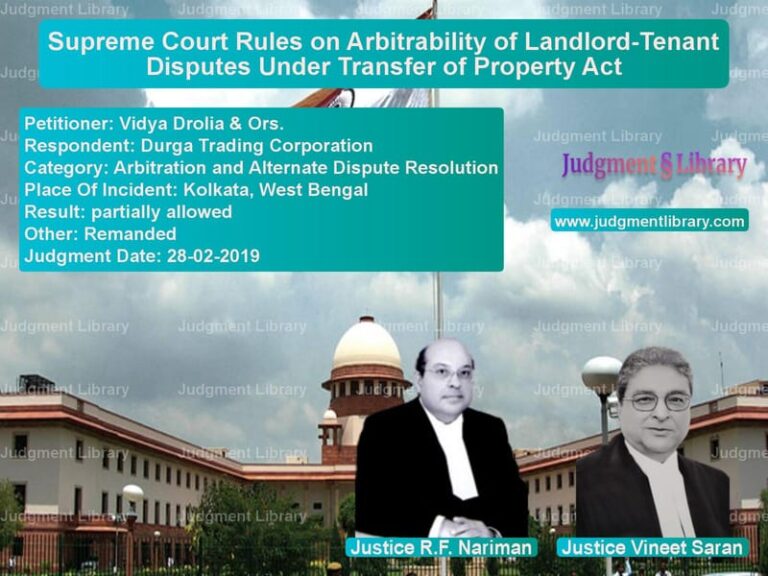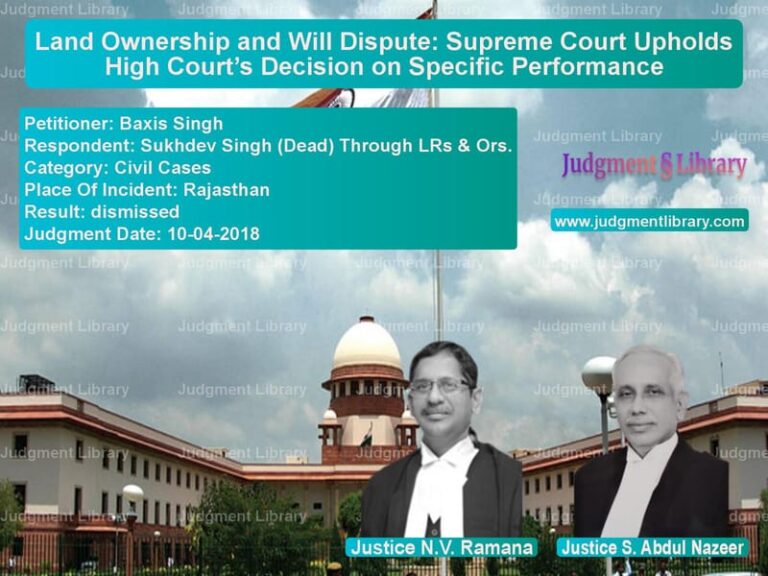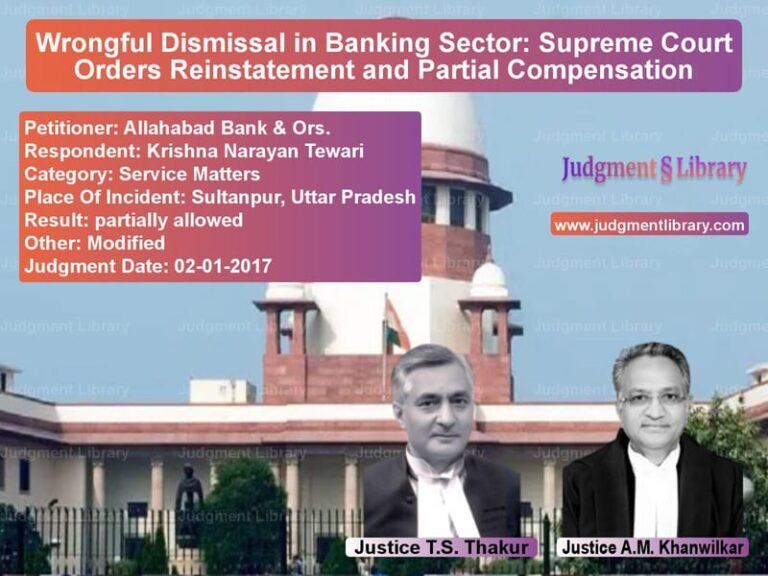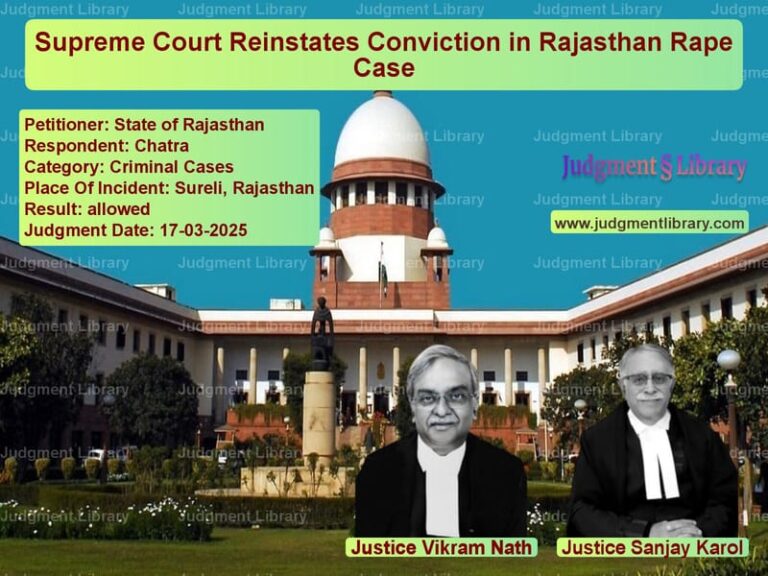Supreme Court Upholds Freedom of Speech: Quashes FIR Against MP Over Poem Recitation
The Supreme Court of India recently delivered a landmark judgment in Imran Pratapgarhi vs. State of Gujarat & Anr., reaffirming the fundamental right to freedom of speech and expression under Article 19(1)(a) of the Constitution. The case involved an FIR registered against the appellant, a Member of Parliament, for reciting a poem at a public event, which was alleged to incite communal disharmony. Here’s a detailed analysis of the judgment and its implications.
Background of the Case
The appellant, Imran Pratapgarhi, a Rajya Sabha MP, recited a poem at a mass wedding event in Jamnagar, Gujarat, on December 29, 2024. A video of the event was later shared on social media platform ‘X’. The second respondent filed an FIR alleging that the poem incited enmity between communities and hurt religious sentiments. The FIR invoked Sections 196, 197(1), 299, 302, and 57 of the Bharatiya Nyaya Sanhita (BNS), 2023. The appellant approached the High Court seeking quashing of the FIR, but the petition was dismissed, leading to the appeal before the Supreme Court.
Key Arguments
Appellant’s (Imran Pratapgarhi) Arguments:
- The poem did not target any religion, caste, or community and promoted non-violence and love.
- The FIR violated his fundamental right to freedom of speech and expression under Article 19(1)(a).
- The High Court erred in dismissing his petition without examining the poem’s content objectively.
Respondent’s (State of Gujarat) Arguments:
- The poem’s content allegedly incited communal disharmony and was detrimental to national unity.
- The FIR was registered lawfully as the poem’s recitation fell under the exceptions to free speech under Article 19(2).
- The High Court correctly refrained from interfering at the nascent stage of investigation.
Supreme Court’s Analysis
1. Content of the Poem
The Court examined the poem’s text and its English translation, concluding:
“On plain reading of the original Urdu version and its English translation, the following conclusions can be drawn: a) This poem has nothing to do with any religion, community, region or race; b) By no stretch of imagination, the contents affect national integration; c) It does not jeopardise the sovereignty, unity, integrity or security of India; d) It suggests that while fighting to secure our rights if we are met with injustice, we will face it with love.”
2. Applicability of BNS Provisions
The Court analyzed the alleged offences under the BNS:
- Section 196 (Promoting Enmity Between Groups): The poem did not target any specific group or promote disharmony. The Court held, “The poem’s words do not bring about or promote disharmony or feelings of hatred or ill-will.”
- Section 197 (Prejudicial to National Integration): No imputation or assertion against any community was found. The Court noted, “The poem does not make or publish any imputation and is not concerned with any religious, racial, language, regional group, caste, or community.”
- Section 299 (Outraging Religious Feelings): The Court dismissed this allegation as “ridiculous”, stating the poem merely addressed injustice symbolically.
- Section 302 (Wounding Religious Feelings): The Court found no deliberate intention to wound religious feelings.
3. Freedom of Speech and Expression
The Court emphasized the importance of Article 19(1)(a) and the duty of law enforcement to uphold constitutional values:
“The police officers must abide by the Constitution and respect its ideals… Article 19(1)(a) confers a fundamental right on all citizens to freedom of speech and expression. The police machinery is a part of the State within the meaning of Article 12 of the Constitution.”
The Court also cited Shreya Singhal v. Union of India, highlighting that liberty of thought and expression is a cardinal value in a democracy.
4. Duty of Courts to Protect Fundamental Rights
The Court underscored the judiciary’s role in safeguarding free speech:
“Courts, particularly the constitutional Courts, must be at the forefront to zealously protect the fundamental rights of the citizens… If the police or executive fail to honour and protect the fundamental rights guaranteed under Article 19(1)(a), it is the duty of the Courts to step in.”
Conclusion
The Supreme Court allowed the appeal, quashing the FIR and all subsequent proceedings. The judgment reaffirmed the following principles:
- Freedom of speech and expression is a cornerstone of democracy, and its protection is paramount.
- Courts must evaluate alleged offences under Sections 196, 197, and 299 of the BNS objectively, considering the standards of reasonable, strong-minded individuals.
- Law enforcement must be sensitized to constitutional values and avoid mechanically registering FIRs that curb free speech.
- The judiciary must intervene to prevent abuse of process when no prima facie offence is made out, even at the nascent stage of investigation.
This judgment serves as a robust reminder of the judiciary’s commitment to upholding fundamental rights and fostering a culture of free expression in India.
Petitioner Name: Imran Pratapgarhi.Respondent Name: State of Gujarat and Anr..Judgment By: Justice Abhay S. Oka, Justice Ujjal Bhuyan.Place Of Incident: Jamnagar, Gujarat.Judgment Date: 28-03-2025.
Don’t miss out on the full details! Download the complete judgment in PDF format below and gain valuable insights instantly!
Download Judgment: imran-pratapgarhi-vs-state-of-gujarat-and-supreme-court-of-india-judgment-dated-28-03-2025.pdf
Directly Download Judgment: Directly download this Judgment
See all petitions in Fundamental Rights
See all petitions in Public Interest Litigation
See all petitions in Criminal Defamation
See all petitions in Legal Malpractice
See all petitions in Constitution Interpretation
See all petitions in Judgment by Abhay S. Oka
See all petitions in Judgment by Ujjal Bhuyan
See all petitions in allowed
See all petitions in Quashed
See all petitions in supreme court of India judgments March 2025
See all petitions in 2025 judgments
See all posts in Constitutional Cases Category
See all allowed petitions in Constitutional Cases Category
See all Dismissed petitions in Constitutional Cases Category
See all partially allowed petitions in Constitutional Cases Category







